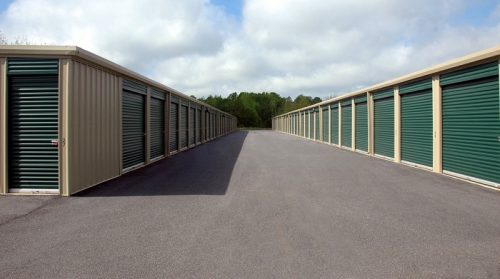How to Sell Your House When It’s Jam-Packed with Junk, Part IV…Put overflow in Storage

Get this: Nearly 1 in 10 American households rents a storage facility, and there are 4 times more storage facilities in the country than Starbucks. Statistics show that most people who pay to rent a storage unit already have a garage, attic, or basement.
So what does that tell us? We have too much stuff. Friel of Chaos to Order in Chicago suggests everyone take the time to sort through their belongings and discard the unwanted stuff before resorting to storage.
“You will be a happier person without the weight of all that stuff sitting on your shoulders. It’s a freeing feeling,” she says. “We tell people who are moving to live in their home like they are planning to move next month. Everything you have is something you treasure.”
- However, there may be occasions that require you to find storage, such as: You need to store your stuff before moving to a bigger house.
- You need to clear out your furniture so your real estate agent can stage your house.
- You have lots of seasonal items, such as boxes upon boxes of antique Santa Claus statues, that you only display during the holidays and still use every year.
No judgment.
Sometimes you need to store stuff.
Tips for storing items to sell your house full of stuff:
1. Decide between full-service storage and self-storage.
As stated above, there are more storage facilities in the U.S. than Starbucks, which means you won’t have to look far to find yourself a storage unit. But there are some choices.
You’ll have the option between full-service storage and self storage. The difference being that full-service storage businesses will pick up, haul, and store your stuff. When it comes to self storage, it’s all on you. You can find full-service storage businesses, like MakeSpace, that will take images of all the boxes and items in your storage and keep them as a digital inventory that you can access at any time.
Note that full-service storage may be limited if you don’t live near a metro area; it’s a growing industry that hasn’t seemed to reach most of flyover country.
2. Compare pricing before you settle on a unit.
The average cost of a climate controlled storage space was $1.63 per square foot in 2016. However, pricing depends on where you live and how much you want to store, and the costs will differ largely between full-service and self storage.
You may be able to find a small self storage space for less than $70 a month; a large full-service storage space could cost you hundreds monthly with the possibility of an upfront pick-up fee.
Make sure you ask about whether there is a minimum monthly contract or if you can go month-to-month. Square foot minimums may also be a factor. Another way to save some money is to skip the insurance option, especially if your homeowner’s insurance covers off-premise possessions.
And remember, before you sign any contract make sure you understand what happens if you miss a few payments; you don’t want your stuff auctioned to the highest bidder on a reality show.
3. Find out about the storage facility’s security, climate control, lighting, and accessibility.
If you are storing valuable items or collectibles, ask about the security of the storage unit as well as any amenities. Is the unit climate controlled (especially useful if you are storing technology or glassware or other items that can be affected by heat or cold)? Does it come with locking systems (look into the number of locks), video monitoring, human surveillance, lighting, indoor or outdoor access and even crime in the area?
You also want to ask about accessibility. If you put years worth of documents in storage and suddenly you need your 2011 W-2s, you will need to know if you can access your storage unit at 5 am. Some storage units allow for 24-hour, seven-day-a-week access. Others do not.
4. Look into the individual unit’s accessibility.
Some storage units are inside a door, up a set of steep stairs and down a hallway. Others have easy drive-up access and a big garage door. Ask to see the spaces that are available, so you don’t find yourself lugging boxes of stuff through an obstacle course.
5. Hit up friends and family or check if there are peer-to-peer storage options in your locale.
Storage units are not your only option. Ask friends or family if they have temporary space for your stuff. Or consider peer-to-peer storage, which is like Airbnb for your boxes of hand-me downs. It’s still a fledgling industry, so there may not be options in your area.
6. Talk with your agent about the best course of action.
Before you box up and store your clutter, talk to your real estate agent. You may find that cleaning out and storing everything in a large unit may be so expensive that the effort won’t pay off. Think: Will this make a difference to your bottom line? Will the cost of this be worth it?
See more at…https://www.homelight.com/blog/how-to-sell-a-house-full-of-stuff/